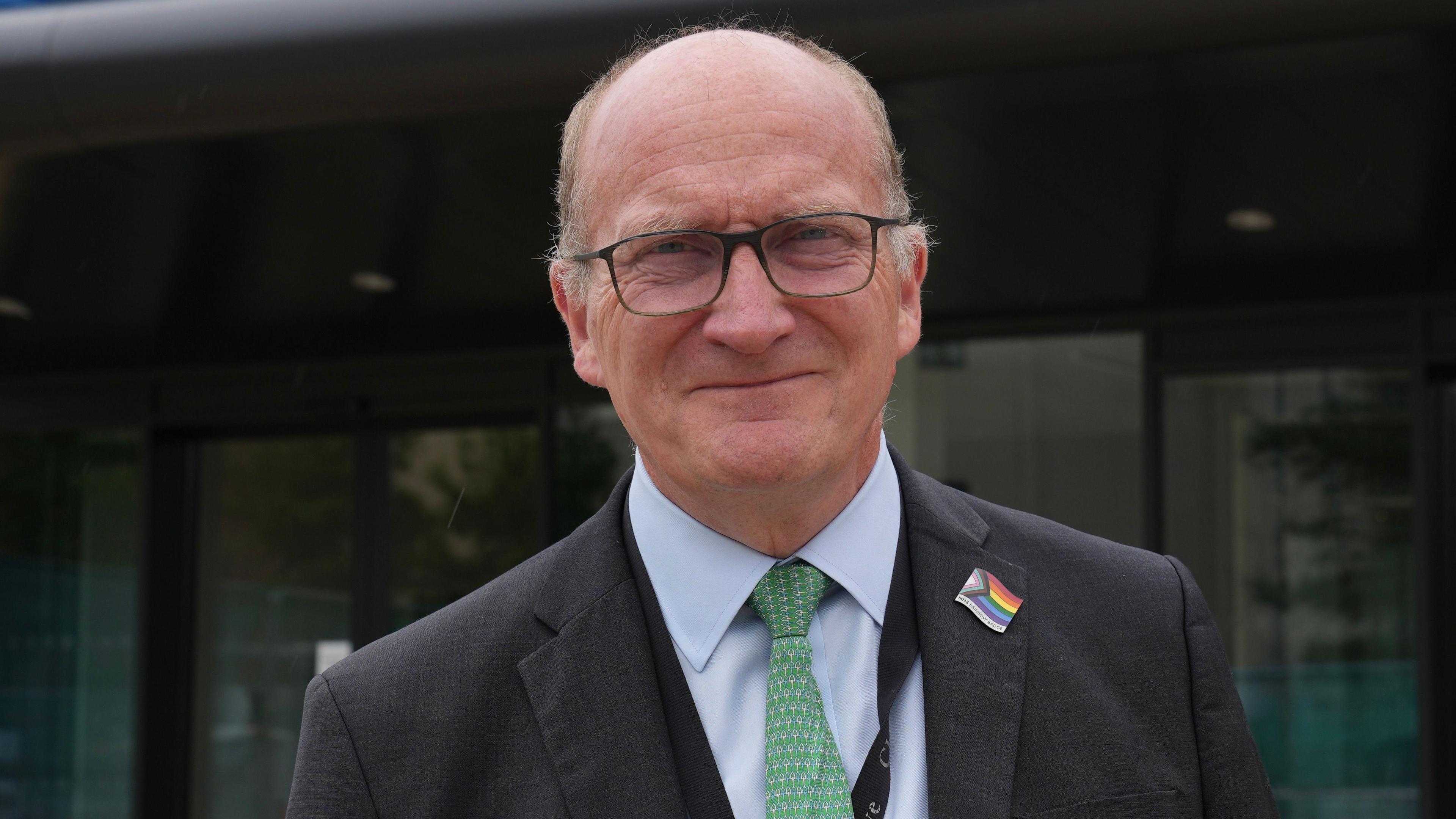Planned surgeries going ahead despite spike in flu

Nick Hulme said, at Colchester Hospital, some patients were being treated in corridors
- Published
A hospital chief executive has said planned surgeries are continuing despite an increasing number of inpatients being admitted with viruses.
Nick Hulme said Colchester and Ipswich hospitals had experienced a spike in flu patients, as well as people with Covid-19 and respiratory syncytial virus (RSV).
He said more than 65 beds across both sites had been closed because of their close proximity to infected patients and that some at Colchester were being treated in corridors.
NHS data showed about 96.46% of beds at the trust were occupied, but Mr Hulme said there were "no plans" to shut down "our elective programmes".
"People can be assured if they're booked in for the next few days to have their surgery on either site we will continue, but it is something we are going to have to keep an hour by hour review of because we were not expecting to see such high levels flu," said Mr Hulme, speaking to BBC Radio Suffolk.
"It's not just the patients with flu that cause the issues, it's the logistical issues around the fact that we can use less beds if we get an infected patient in a bay."
Prioritise safety not A&E target, NHS leaders told
- Published9 December 2024
Flu cases make NHS busier than ever with 95% of beds full
- Published5 December 2024
Hospitals coping with Covid and flu 'twindemic'
- Published4 January 2023
The two hospitals are run by the East Suffolk and North Essex NHS Foundation Trust.
Mr Hulme said there were 17 patients with Covid-19 between the two sites, 36 with flu and 10 with RSV.
He admitted that not all patients were being treated in wards, but were "safe".
"It is not ideal for some of the patients who are not placed in wards and bays in the way that we want to," he continued.
"For some reason we are seeing this spike of flu 10 days before Christmas when normally we would see it in January.
"We've planned for that, we will reduce our planned care, our elective care, our operations in January, so that we can accommodate and have more emergency patients in those elective beds but it has taken us a little bit by surprise."
NHS data showed in the week leading up to 8 December, the trust had 1,274 general and acute beds available, with 1,229 of these occupied by patients.
Analysis
By Nikki Fox, BBC health correspondent, East of England
The fact people are already having to be placed in corridors to manage risk at Colchester Hospital reflects how full the hospital is.
Ambulances are being diverted to Ipswich and we haven't even reached the peak season for flu and Covid.
The hospital won't want to postpone operations. Five years ago, people were only waiting 18 weeks, but now some people are waiting 18 months for surgery.
A new surgery hub at Colchester has also just opened and the plan was to ringfence those beds so that surgery continued no matter how busy the main hospital was.
The fact that patients are in corridors means it will be extremely tempting to use that centre to place emergencies if more come in.
Who would want the job of being a hospital chief executive over the next four weeks?
LISTEN: Ipswich Hospital 'patient experience not the best'
Get in touch
Do you have a story suggestion for Suffolk?
Follow Suffolk news on BBC Sounds, Facebook, external, Instagram, external and X, external.